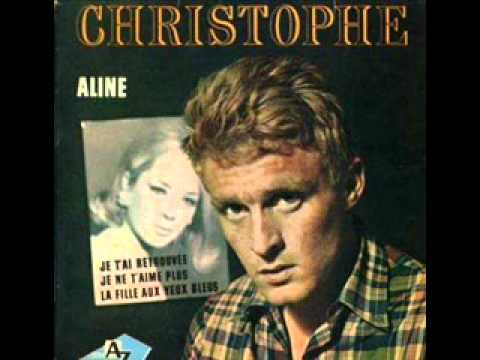My Friend, the debut album from C.A.R., came out late last year and has revealed more of its lopsided charm with each listen, as scruffy, sweet and sad albums are wont to do. Its maker, Chloé Raunet, is half-French, born in Canada and based in London. She used to be in the trio Battant, who were signed (like C.A.R.) to French label Kill The DJ and whose progress was cut short by the death of band member Joel Dever in 2011.
‘Glock’d’, the first track Raunet wrote for the album, is released this month as part of a new EP. Its lolloping rhythm and insistent two-chord strum suggest a fragile but necessary reconnection with the world. I didn’t get around to speaking to Chloé when the album was released, so this seemed like the next best opportunity.
What state of mind were you in at the time of writing the song?
Chloé Raunet: Gosh, I was pretty numb when I wrote ‘Glock’d’, confused and unsure about things. I was in the midst of some very dark stuff and I think ‘Glock’d’ was an attempt to see some light, although the lyrics are bleak. It was also very much an experiment – what am I gonnna do? Finishing that track gave my confidence a bit of a boost. I was like, Okay maybe I can do this. Let’s see what else I can come up with.
You went out on tour with Gesaffelstein just as you were just getting started with C.A.R. Was that a steep learning curve?
CR: Yeah, in a way. I started out the tour on stage alone and after three or four gigs I decided it would be better to have someone up there with me, so I asked Thor – who I’d initially invited to mix the live shows – if he wanted to come on tour. We had Christmas break and a few weeks in between to prepare. The first show we did together was at Paris Olympia, which was somewhat ironic as I’d pretty much debuted C.A.R. supporting Cat Power there a few months before. And that was absolutely terrifying. I’d only ever played alone once before, for a few mates in a tiny Parisian art gallery, and then I was catapulted onto this massive stage. It was so traumatic I’ve blocked most of it out. I just remember coming off stage and bursting into tears cause I’d put so much pressure on myself. But touring with Gesaffelstein was more Thor and I getting used to playing together. I suppose the live show must’ve improved over the course of it, but I feel the big progressions happened after. The show has evolved so much since then. Now we’re comfortable with each other, and I think we’ve learned more playing small clubs and adapting the set recently than we did during that initial tour.
The album includes a cover of Christophe’s ‘La Petite Fille du 3eme’. Can you tell me about the choice of song, and your relationship to this Francophone heritage?
CR: I had the opportunity to record a cover for the Hyères fashion festival last year, and I knew I wanted to do something in French. Although I’ve never really lived there (bar a shaky year in Marseille when I was 14), I have a French passport, am signed to a French record label and have always been well received that side of the Channel. Only I can’t write in French. The language is completely different to English and I rely too much on double meaning and the nuances of sound to make it work. ‘La Petite Fille du 3eme’ is a song I’ve loved for a long time and it stood out as an obvious choice. I’m not sure who initially introduced me to it, but it’s one that’s received a lot of play on our NTS Latete Atoto radio show. The lyrics are dark, I could relate to the narrative and I figured musically it would translate well to synths. I didn’t know a lot about Christophe though. I’m not a digger by nature and it wasn’t until after the fact I realised what an iconic figure he is. I’m not sure I would have had the balls to take him on had I known it at the time, although everyone tells me he’s a super cool guy! With regards to how it sits with the rest of the tracks on the album, interpreting someone else’s work is a completely different exercise to writing on your own. The inspiration is laid clear in front of you. I didn’t have to start from scratch and I think I was able to achieve something I couldn’t have conceived on my own.
Delphine Dora
This month I’ve also been catching up with Delphine Dora – musically and via email. Dora has been running her own Wild Silence label for several years, releasing albums (mostly of her own music) as limited edition CD-Rs or via Bandcamp. There have been various collaborations, recently with harpist Aine O’Dwyer, but the typical sound of Dora is of her recorded alone, delivering extemporised piano-and-vocal performances. Depending on the project, the lyrics can come from pre-existing literary texts or be improvised vocalisations. When I first heard her 2013 album Conversation Among The Ruins, which is based on Sylvia Plath’s poetry, I mentally filed it in a section labelled ‘For Further Consideration’. As freeform as the piano playing is, it still retains a conventional harmonic beauty; the voice is the more challenging proposition, allowed to meander, sharp or flat, stumbling, soaring. This won’t be so unusual to anyone versed in the music of, say, Robert Wyatt, but Dora’s particular timbre has taken me some time to adjust to. I’m not sure I have entirely adjusted yet, but, over time, I’ve started to value the particular challenge her music represents, and the awkward sensations it provokes.
The sense of solitary commitment to a private vision and mode of expression, from moment to moment but also as it unfolds across her various recordings, is in itself very moving. Her latest, Près Du Cœur Sauvage (the French title of the Clarice Lispector novel Near To The Wild Heart) couldn’t be more aptly named. “It’s not a conceptual album about Lispector’s book,” says Dora. “But I could relate to how she approaches writing – the introspective aspects, the stream of consciousness.” Here, the ‘language’ is entirely invented in the moment, “a kind of glossolalia” as Dora puts it. The album is both more produced and more unruly than previous work, with multi-tracking making room for field recordings, snatches of other instruments and clashing sonorities.
On Bandcamp, one of the tags for the album is ‘outsider’. Is there any way in which your music could be considered outsider art?
Delphine Dora: I’ve been thinking about this subject for a long time. I did a PhD on outsider art and art brut for five years some years ago! I never finished writing it, unfortunately – I focussed myself more on creation than on academic work. I know that for someone like [French painter and sculptor] Dubuffet, or activists of outsider art, an artist that labels his work as ‘outsider’ can’t be an outsider, because he’s aware of being outside of something. My first musical works were more reminiscent of ‘art brut’ than they are today – they were very raw and weird. I feel affinities with outsider art in some ways: my work is mainly solitary for some social aspects (more clandestine than commercial), for some aesthetic aspects too (its relative weirdness, the imaginary language, the intuitive and spontaneous approach, the creation on the spot) – I never create the same thing twice.
The tag ‘outsider music’ on Bandcamp was just a means to categorise my work for others. But I can say that labels really don’t matter to me and I prefer avoiding this than to fit in a box. What interests me the most is the way an art or a music can be approached in different ways.”
One of the problems with the category of outsider art can be the fetishisation of mental health problems.
DD: I completely agree with you. It’s sad that the myths of outsider artists take into account the biographical aspects, like madness, and that some art critics confuse madness with freedom. I just feel outsider because I don’t feel attached to any traditions, any group, any community, any musical worlds. My musical world is a bit rhizomatic and has many different sources of inspirations and influences."
Rockfort also recommends:
Black Zone Myth Chant – Mane Thecel Phares
My favourite incarnation of the French artist also known as High Wolf returns with more experimental hip hop. As with the previous Straight Cassette, reissued on LP last year, the relation to anything resembling actual hip hop is tenuous at best, perhaps with only sluggishly low-pitched vocals filling in where an MC might be. The difference is that where Straight Cassette felt like a dabbling that had unexpectedly borne fruit, Mane Thecel Phares feels like he had a more deliberate gameplan, a recipe for a sinister soup – all ritualistic menace and rhythmic voodoo that’s bordering on Shackleton territory. It’s also the third great release in a row from the Editions Gravats label run by Low Jack (aka Philippe Hallais), following on from Hallais’ own corrosive and corroded seven inch as Îlots and the absurdly enjoyable cassette’s worth of 80s French avant-funk, Quartier Choc.
Andrea Balency – Volcano EP
Franco-Mexican Balency has already had her fair share of FKA Twigs comparisons but Balency’s register is more rarefied, even chaste – her previous EP featured a track called ‘Crystals’ and here we’ve got ‘Volcano’ – emotions captured in sculptures of fire and ice. Any indecency is in the baroque sumptuousness of the detailing, the ornamental cascades of synths, backing vocals like mist on a luxury mirror. The most exquisite of this month’s releases.
Pneu – Destination Qualité
On a completely different note, this hair-raising post-hardcore/math duo – without any of the tedium that sometimes implies – returns with a third album of brilliantly disciplined hysteria. The highlight is the 10 minutes of tension and release that make up ‘Gin Tonic Abordable’ but the Looney Tunes energy (the guitars on ‘Catadioptre Ambidextre’ actually sound like the old Warner Bros cartoon intro) is infectious throughout. When vocals crop up on ‘Hinges’, courtesy of Pete Simonelli of the Enablers, they initially feel superfluous given how instrumentally expressive Pneu are elsewhere. Luckily, Simonelli’s contribution turns out to be a riot too.
Catherine Hershey – Ici Le Coeur & Various Artists – La Mostla NÒVIA
Finally, I wrote fairly extensively about La Souterraine last month, only to realise I’d completely missed a ‘Mostla Tape’ from last year – Catherine Hershey’s Ici Le Coeur – which quickly became my favourite of the bunch. I know very little about Hershey except that she’s Franco-American and her album is a collection of peculiar, haunting ritournelles and comptines for grown-ups, assembled almost entirely from multi-tracked a cappella vocals.
More recently released is an enlightening compilation of experimental, queasily droning folk from a collective based in the Haute-Loire department in central-southern France, La NÒVIA. Not only was I not expecting this from La Souterraine, I wasn’t expecting this at all in France in 2015. I obviously haven’t been looking hard enough.





